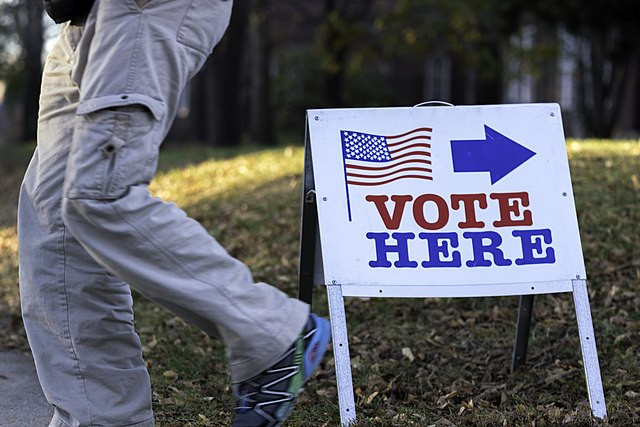A Georgia judge has struck down a series of new election rules championed by allies of former President Donald Trump, ruling them unconstitutional ahead of the critical 2024 presidential election. The decision, handed down by Fulton County Superior Court Judge Thomas Cox, targets controversial regulations that Democrats argued could sow post-election chaos in the battleground state.
Among the rules invalidated were provisions requiring county election officials to conduct a "reasonable inquiry" into election results before certifying them and to review "all election-related documentation" during the certification process. In his ruling on Wednesday, Cox stated, "The court here declares that these rules are illegal, unconstitutional, and void."
Georgia's 16 electoral votes are pivotal for both Trump and his Democratic opponent, Vice President Kamala Harris. President Joe Biden narrowly won the state in 2020 by just over 10,000 votes. As early voting kicked off this week, record turnout underscored the high stakes of the upcoming election.
The Georgia State Election Board, which is GOP-controlled, passed the rules in August. Trump publicly praised the three Republican board members responsible for pushing the changes, describing them as "pit bulls fighting for transparency, honesty, and victory" during a rally in Atlanta. Democrats and voting rights advocates quickly challenged the measures, arguing that they could allow partisan officials to delay or reject certification of election results based on unsubstantiated claims of fraud.
Cox's ruling highlighted the ambiguity and potential for abuse within the regulations. He noted that the "reasonable inquiry" rule introduced an "undefined step" into the certification process, while the rule permitting officials to examine all documentation created during the election left "a statutorily unbounded scope" that could invite manipulation. The judge's decision was part of a lawsuit filed by the election advocacy group Eternal Vigilance Action.
The judge also invalidated another rule requiring hand counts of ballots at polling places, stating that Georgia law did not support such a mandate. This follows a similar decision on Tuesday by another judge who temporarily paused the hand count rule in response to a separate challenge from Cobb County. "The rule vastly expands the authority and obligations of poll officials in preparing ballots pre-delivery to the superintendents and pre-certification," Cox wrote in his decision.
Despite these rulings, the Georgia State Election Board defended its actions. Executive Director Mike Coan expressed disappointment but noted that the board respects the judge's decision. "We respect the judge's decision and agree with him that it was a good rule but have a sincere disagreement that it was too close to the election," Coan stated. The board may appeal the ruling, leaving open the possibility that an appeals court could reverse the decision.
Secretary of State Brad Raffensperger, Georgia's top election official, had voiced concerns ahead of the meeting when the rules were passed, arguing that the hand-count provision could lead to "the opportunity for error, lost or stolen ballots, and fraud." The GOP-backed board's 3-2 vote pushed through the changes despite objections from voting rights groups and Democrats, who warned that the measures would create confusion and undermine confidence in the election process.
Democrats hailed the ruling as a victory for Georgia voters. A statement from the Harris campaign emphasized that "from the beginning, this rule was an effort to delay election results to sow doubt in the outcome, and our democracy is stronger thanks to this decision to block it." The Democratic National Committee had also joined the lawsuit challenging the hand-count rule, highlighting its potential to disrupt election results and create disorder.
In another case heard on Tuesday, Judge Robert McBurney ruled that Georgia's local election officials must certify results, rejecting arguments that counties could refuse certification if they had concerns about the voting process. This ruling reinforces the need for clarity and consistency in Georgia's election procedures as the state prepares for its next major vote.
The hand-count rule would have required three poll workers at each of Georgia's more than 6,500 precincts to conduct manual counts, beginning on election night. Critics argued that the rule would not only delay the reporting of results but also increase the likelihood of errors. Janelle King, a Republican member of the election board, defended the hand count as a necessary measure to ensure accuracy, stating during the meeting, "What I don't want to do is set a precedent that we are OK with speed over accuracy."
The issue of election integrity remains particularly sensitive in Georgia, where Trump has been accused of pressuring state officials to overturn his 2020 election loss. Trump faces criminal charges related to his efforts to influence the outcome, though he denies any wrongdoing and has pleaded not guilty.






